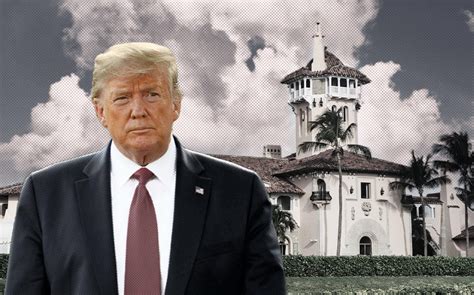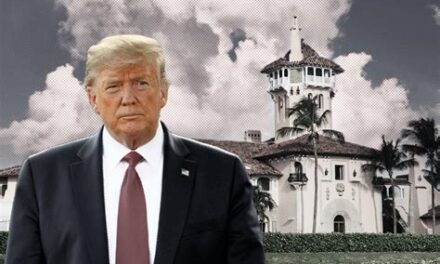American Conservatism is not always as easy to define as we would like. Our Founding Fathers are largely celebrated as men who achieved something new and, therefore, radical in the history and science of statecraft. One might go so far as to call their achievement exceptional. What country had explicitly based its existence on the recognitions of human right that were not granted by a king or parliament of any kind, but from birth, a gift from God as a condition of their humanity?
Along with that understanding, our Founders hammered out a constitution that set the branches of the central government at odds with one another to prevent any one of them from holding too much power; it limited the claims that government and left the states, localities, and people with vague and expansive powers. All told, the project does not sound very conservative.
But before we declare the case settled, say, in favor of our Thomases—Paine and Jefferson—let’s not forget the very nature of the argument. If men are “endowed by their Creator” with the rights to “life, liberty, and the pursuit of happiness,” then such rights are venerable, an inheritance of the ages, which, regardless of the arrogance of princes, are worth asserting as ours and quite properly worth conserving.
Rights, even those that are fundamentally human, don’t exist in a vacuum. They are realized and handed down via institutions, communities, traditions, and families. The American Founders asserted the primary existence of God-given rights as no one before had in a system that was designed to preserve them, but they also built on a centuries-old understanding of the rule of law: Roman Law and the English Common Law traditions.
So as we consider the American founding, we tip our hats to what is innovative but with a clear appreciation that constitutional innovation expressed some very old ideas—and ancient habits. Let’s just say there’s a lot of Edmund Burke in what historians and political scientists often call our “experiment.”
The local, the traditional, and the small: these are indispensable building blocks, the hard-rock expressions, of a free society, men associating as they will but within agreed upon limits, some new and some old. The Founders assumed that if certain powers could be strictly confined to those arenas where it tended to most easily expand and consolidate, and if others could be dispersed, there was no reason the free order should not last.
So much for the civics lesson.
Barack Obama had small regard for the small and the local; community organizing from his perspective always had an upward, expansive trajectory. Happily, he has helicoptered into the sunset, quite possibly (though only time will tell) with his “legacy,” his bequest to the nation, little more than a bank account in the deep red.
The big question now is what will Donald Trump do that’s really different? As we saw in the campaign, Trump is a man who feeds off of a public that responds enthusiastically to him. In that respect, he’s not unlike a rabble-rousing evangelist. If Billy Sunday hadn’t gotten a chorus of “Amens!” from the crowds that flocked to hear him, he’d have probably ceased to be the phenomenon he was—and maybe, publicly, no phenomenon at all.
And so it is with candidate and now President Donald Trump. If the people who put him in office really want him to build that wall, he’ll feel obligated to do so or, at least, make it appear that he’s trying. The same calculus applies keeping foreign products out and fostering the consumption of goods made in America by Americans. As for employment, are blue-collar workers on the dole? Get them working on our crumbling infrastructure. Amen!
This to-do list is all good and well for those who voted for Trump; however, I’m not alone in wondering what his program will mean to those of us who feel overly burdened by a central government that operates on the premise that there is no aspect, no small niche of life that it should not regulate and no limit to the amount of money it may spend to cinch the strait-jacket of the nanny state one more notch—for the general good, of course.
Too much of what Trump proposes spells bureaucracy and debt. What I want to know is, where are the conservatives to object? I don’t mean the anti-Trump conservatives at National Review or The Weekly Standard or even at the Foundation for Economic Education. I mean people we meet everyday, people we know, and millions like them who screamed “statism!” when Obama proposed his trillion in stimulus but are now just fine with Steve Bannon’s identical figure. Will shovel-readiness suddenly be feasible because Trump is doing the digging? Will bureaucratic red tape fall in tatters at his touch?
The skeptics among us will be, well, skeptical, and for good reasons. But I’m seeing too many people, men and women who probably would have cheered President Ted Cruz’s proposing an agenda to shrink government and unleash America’s entrepreneurial spirit, shouting huzzah at everything Trump declares will “Make America Great Again.”
A few days ago I met an acquaintance, a very conservative gentleman, who couldn’t understand why I found Trump’s domestic policies suspect. Meet with union leaders? Fine! Throw a trillion against a wall and see if it sticks (Bannon’s words). Wonderful! Subsidize Carrier? Brilliant!
The lessons of the past, about sluggish, wasteful bureaucratic management, which conservatives had insisted on as matters of principle and practicality, the dangers of an expanding national debt, the proliferation of un-readable (because no Congressman has the time) bills, had suddenly become irrelevant January 20th. “Trust me” is the new “Yes we can!”
In fairness, Trump has done some good things so far. His effectual canceling of many of Obama’s fiats, with more cancellations to come, is heartening; his announcement about the much ballyhooed border wall and his promise to limit the influx of Syrian “refugees” are important nods to homeland security. But bureaucratic creep and the expenditure of a trillion here and a trillion there will scuttle the Trump administration, the success of which depends on real and lasting economic growth. A profligate, overbearing government will not drain the swamp; it will swamp us.
What we need is not a few conservative voices crying in the wilderness but a Mormon Tabernacle Choir of such men who will tell our political Billy Sunday to stop playing to the crowd and start paying attention to his oath of office, which, if I may be permitted one more civics lesson, has something to do with upholding our Constitution, the instrument of government that limits power.














